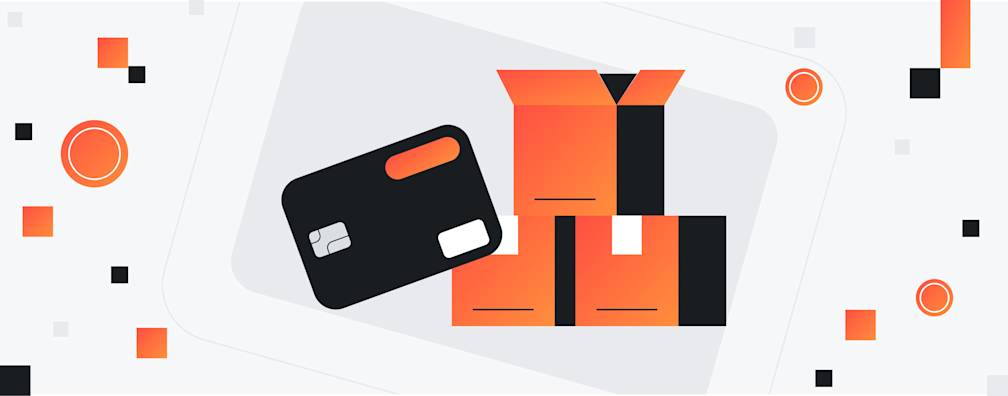CHAPS vs. BACS: What’s the difference?

Transferring money between bank accounts has never been easier. Online banking means you can open an app on your phone and send money to anyone, anywhere in the world, in a few clicks.
But when a business sends money, the stakes are a little higher than when you’re paying your mates back after a night at the pub and so faster payments are critical. That’s because businesses often have to transfer large sums of money to a deadline.
When making these types of high-value transfers through your bank, there are two main payment networks you’ll be using: CHAPS vs BACS.
So let’s take a look at the difference between BACS and CHAPS, and what this means for your business.
What is a CHAPS payment?
Despite its jaunty acronym, the full name is pretty dry. CHAPS stands for Clearing House Automated Payment System.
CHAPS is a bank-to-bank money transfer system that runs through the SWIFT network. It’s typically reserved for one-off, high-value payments that need to be sent and received on the same day. So things like purchasing property, paying VAT, or paying your building society.
CHAPS payments start from £10,000 and upwards, with no transfer caps or upper payment limit.
These types of payments tap into a wide network, with over 30 direct banking participants and more than 5,000 financial institutions across the country able to make and accept CHAPS payments.
What is a BACS payment?
BACS stands for Bankers Automated Clearing Services.
Credit and debit card transactions are handled by BACS. If you’ve ever made direct debit or direct credit transactions for your business then the BACS system would have fulfilled that payment for you. Because of this, it is the most common bank transfer method used by UK businesses.
BACS payments take longer than CHAPS payments to clear and are normally used for low-value transactions (by banking standards, at least). The upper payment limit for BACS payments is £250,000 per transfer.
Businesses use the BACS payment network for routine transactions, such as paying employee wages, suppliers and pension payments.
So, what’s the difference between BACS and CHAPS?
Basically, it all comes down to what service you’re after.
CHAPS payments are for high-value, time-sensitive payments, such as a payment on a property or a large, expensive business asset. When using CHAPS, you can feel confident that your payment will arrive on the day you sent it. When you want something to arrive fast, use CHAPS.
BACS payments are for routine, regular payments that aren’t as time-sensitive, such as paying your suppliers or sending your staff their wages.
Which transfer method is faster?
BACS payments take anywhere from two to three days to clear, so don’t choose this method if you want your money to arrive quickly.
CHAPS payments are much faster. You’re usually able to get a same-day payment if your transfer is made prior to the cut-off time of 3:00-5:00pm that day (depending on whether you choose in-person or online). Otherwise, next-day payment is available.
Which payment method is more expensive?
BACS payments are one of the cheapest ways to transfer money between banks. You can expect to pay anywhere from 5-50p (plus any additional fees charged by the banks) per transaction.
CHAPS payments are much more expensive. This is because your bank or payment partner is required to pay for access to and maintenance costs for the software and hardware needed to complete your transfer. For CHAPS payments you can expect to pay anywhere from £25-£35 per transfer. As such, you should try to limit the number of CHAPS payments you make in a year.
Airwallex international payments is a faster, cheaper alternative to both CHAPS and BACS
Airwallex exists as an alternative payment service to CHAPS and BACS. Our goal is to make it as fast as possible for you to transfer money. And we don’t think it’s fair that you’re charged a fee every time you pay your bills, your employees, or your suppliers.
So, with this in mind, the Airwallex business account doesn’t charge you anything for local or international money transfers. No matter the value you’re sending, regardless of the number of payments you’re making, you’re able to transfer money completely free of charge. Just pay a small fee of 0.5% or 1% to convert into your preferred currency and off you go. You can also receive funds in multiple currencies and make payments using this balance to avoid fees altogether.
You’ll also benefit from almost instantaneous, same-day transfers on all your transactions. This is because we leverage local payment networks, not the SWIFT network, to transfer money. Allowing us to get your money to your recipient in one business day or less—without the hefty fees.
So, if you’re tired of the long wait times on BACS payments and the additional cost of CHAPS payments, try Airwallex multi-currency business accounts instead for a cheaper, faster alternative.
Discover our complete Business Account.
Related articles about business banking:
Share

The construction industry is ripe for disruption. Having been through a recent building project, the payment flows are all over the place. I think there’s a payments possibility for a SaaS company to make payments work for everyone in the chain: From builders, to customers, to suppliers. Builders: Builders need credit to buy wholesale supplies before projects. Builders need to easily itemise, quote and bill customers, and to issue one-off or recurring payment links easily to customers whenever work is completed. Builders also need to pay out to sub-contractors and employees, and pay out in foreign currency depending on supplier location. Likewise, builders need a robust and controlled company card deck to make on-site decisions easier and more efficient for project managers. Customers: Customers won’t pay for work that is not done so it means each project is broken up into stages of payments. Customers might want to use finance to pay builders. Builders need to be paid on time so they can pay their own staff who are often paid daily/weekly/monthly.
Related Posts

Q&A: How Airwallex solves the treasurer’s historic headache
•5 minutes

Invoice like a pro: How to master the process
•9 minutes
